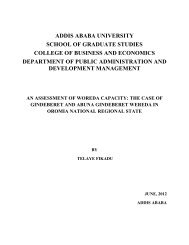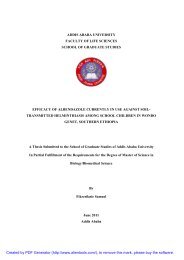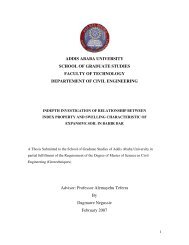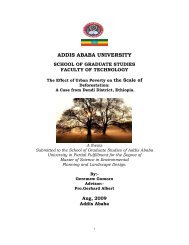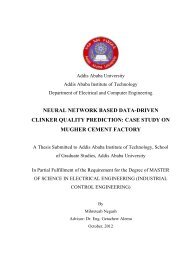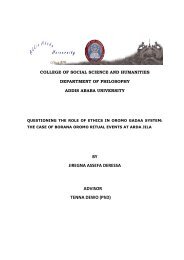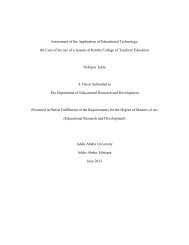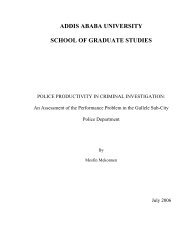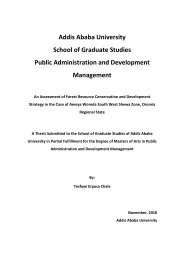FACTORS THAT CONTRIBUTE TO THE PROBLEMS EFL ...
FACTORS THAT CONTRIBUTE TO THE PROBLEMS EFL ...
FACTORS THAT CONTRIBUTE TO THE PROBLEMS EFL ...
You also want an ePaper? Increase the reach of your titles
YUMPU automatically turns print PDFs into web optimized ePapers that Google loves.
Item No.<br />
Students’ No.<br />
Never<br />
Students’ %<br />
Students’ No.<br />
Seldom Total<br />
positive<br />
Students’ %<br />
Students’ No.<br />
Students’ %<br />
Table-2e shows that the great majority of the students (85%) have responded<br />
that they (sometimes, often, always) feel worried and discouraged when they don’t<br />
immediately understand. This result indicated that many students feel worried and<br />
discouraged when they don’t immediately understand the spoken text. It seems for<br />
this reason that many scholars advise to employ simple passages with the<br />
minimum of necessary information that gives students more opportunity to<br />
understand the information. Ur (1984) says, when the learners get simple<br />
passages, their grasping of the message will be much better. At this point,<br />
therefore, the affective barriers decrease.<br />
LEVEL OF DIFFICULTY<br />
Sometimes Often Always Total<br />
negative<br />
Table-2e further shows that the majority of the students (85%) have<br />
responded that they (sometimes, often, always) found it difficult to answer<br />
questions which required other than short answer. From this result, it is possible to<br />
infer that many students find it difficult to answer listening questions which require<br />
longer answers (which demands writing skills at the expense of listening). This<br />
confirms Ur’s statement (1989) which justifies that the difficulty in listening<br />
performance is partly due to the provision of irrelevant tasks that demand the<br />
skills of reading, speaking and writing other than the skills of listening. This is also<br />
in line with Hughes’s statement (1989) which says that if the purpose of the task is<br />
to improve listening skills in particular, the response of the task should demand<br />
only responses which help only to check the learners’ listening skills.<br />
Students’ No.<br />
Students’ %<br />
12 8 5.36 13 8.72 21 14.08 58 38.92 37 24.83 33 22.14 128 85.90<br />
13 9 6.04 12 8.05 21 14.09 51 34.23 42 28.19 35 23.48 128 85.89<br />
In general, Table-2a, Table-2b, Table-2c, Table-2d and Table-2e showed<br />
that listeners’ factors can interfere with learners’ listening comprehension. The<br />
learners’ inability to apply listening strategies, their inability to grasp pronunciation,<br />
inability to manage challenging tasks, and frustration interfered with their listening<br />
46<br />
Students’ No.<br />
Students’ %<br />
Students’ No.<br />
Students’ %<br />
Students’ No.<br />
Students’ %




